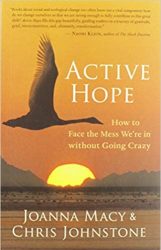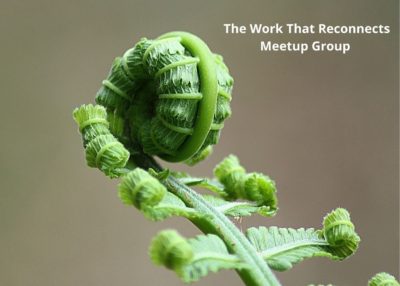Nature & Climate
About nature & climate
Humankind has not woven the web of life. We are but one thread within it. Whatever we do to the web, we do to ourselves. All things are bound together. All things connect.
The problem
The nature and climate crisis is a real threat to life on our planet and the future of the world as we know it. We are already seeing the impact of climate change with more frequent extreme weather events. Humans are destroying the natural world, both directly and as a result of climate change. We are living in the era of the 6th mass extinction – the only mass extinction driven by human activity. These changes are affecting the natural balance that has enabled us to thrive on earth and increasingly there will be an impact on the availability of water, food and other resources.
Species do not exist in isolation; we are all interconnected. A single species interacts with many other species in specific ways that produce benefits to people, like clean air, clean water, and healthy soils for efficient food production. Serious declines in populations of species are an indicator that the ecosystem is breaking down, warning of a larger systems failure.
The response
For many people the climate and nature crisis we are currently in is considered too uncomfortable to talk about. It remains an unspoken presence in the back of our minds. We often hear comments such as don’t go there, it’s too depressing and don’t dwell on the negative. The problem with this approach is that it closes down our conversations, our thinking, and drives our emotional responses underground to leak out when we least expect – and the greatest danger of all is the deadening of our response.
In a process known as adversity activated development, our very act of facing the mess we’re in can help us discover and more enliven our sense of what our lives are about, what we’re here to do and what we are truly capable of. It will also help you access unexpected resilience and creative power.
Here are three ways to be supported and face what’s happening;
Individual support
What feelings come up for you when you think about the nature and climate crisis?
Perhaps you get anxious or angry. Maybe you’re overcome with grief. Or maybe it’s all too overwhelming and you end up feeling numb.
And how is this affecting your life?
It could be you’re someone whose sleep or general ability to function has been impacted or whose relationships have suffered. Perhaps, if you are an activist, you have specific struggles, such as anxiety around arrest or reaching a state of burnout.
It might reassure you to know that all these responses are normal and none of them need to be faced alone.
While it can be hard to talk to family, friends, or colleagues about our difficulties – as they may themselves be struggling or be too uncomfortable to talk about this – the Climate Psychology Alliance (CPA) have a register of therapists who have walked this path and are available to offer therapeutic support.
Who may want support?
- Students – are you studying a climate course that has upset you?
- Scientists – is working daily with frightening data a source of anxiety?
- People of colour – do you feel moved to take part in environmental activism but put off by racism in the field?
- Parents – is thinking about your children’s uncertain future becoming too much to bear
- Anyone – are you distressed by the constant bad news or getting distracted by thoughts of climate catastrophe and nature loss?
What is on offer?
- Up to 3 free sessions of therapeutic support – usually by phone or online, sometimes in person
- A safe and empathetic space where you can vent and be listened to without judgement
- Support in facing the uncertainty of the climate and ecological crisis
- Validation of, and help understanding, difficult feelings and responses
- Practical tips on how to deal with trauma and emotional overwhelm and ways to develop emotional resilience
- Help to start make meaning
- Signposting for action or further support, including free or low-cost therapeutic work if necessary
What next?
If you would like 3 free therapeutic support sessions through the Climate Psychology Alliance’s scheme, please look through the list of practitioners here CPA website and select a 2 or 3 people to contact to see if they have availability. There are also many resources you may find helpful on the CPA website.
Cindy is currently co-ordinating the CPA therapeutic support service and therefore not able to offer these sessions herself.
Workshops & events
So don’t be afraid of the anguish you feel, or the anger or fear, because these responses arise from the depth of your caring and the truth of your interconnectedness with all beings. And the sorrow, grief, and rage you feel is a measure of your humanity and your evolutionary maturity. As your heart breaks open there will be room for the world to heal. The heart that breaks open can contain the whole universe.
Talking about these issues on a one to one basis is a great start. Joining with others who have the same fears and concerns can be extremely validating and empowering. When you realise that there are others that you can share this with, it opens up all sorts of support and possibility for creative actions you may never have considered.
Cindy is a facilitator the Work That Reconnects (also known as Active Hope). This is a body of experiential exercises for people to reconnect with themselves, reconnect with each other, and reconnect with the natural world around them in new, unexpected and deeply powerful ways to create inspiring responses.
You can find details of workshops and events on the Work That Reconnects website and please join Cindy’s mailing list to be notified of workshops and events that she is running on these topics.
Join my group on Meetup for free and see the date of the next meeting or check on my Events page:
Please click on the image to find out about and join the meetup group
Joining with others
Attend a Climate Café
Climate Cafés are a simple idea. They’re opportunities to meet with a facilitator and talk about our responses to climate change. The organisers provide a space, a facilitator, you get yourself a drink and join in. You don’t need to be a climate activist. Climate Cafes don’t expect you to change your lifestyle or opinions or do anything except listen and talk with each other in a safe space with no pressure or judgement. Google Climate Café to find one near you.
- Meetup is a good place to search. Here is one in Oxford – https://www.meetup.com/meetup-group-climatecafes/
- Eventbrite is also a platform to search.
- For Climate Cafes around Scotland – https://www.climate.cafe
- Online Climate Cafes monthly with the Climate Psychology Alliance – https://www.climatepsychologyalliance.org/index.php/component/content/article/climate-cafes?catid=13&Itemid=101
Want to host your own Climate Café? The Climate Psychology Alliance provide training.
Read a book with a friend or start a book group
Active Hope is a great book to start with and discuss what comes up for you around the topics it raises.

